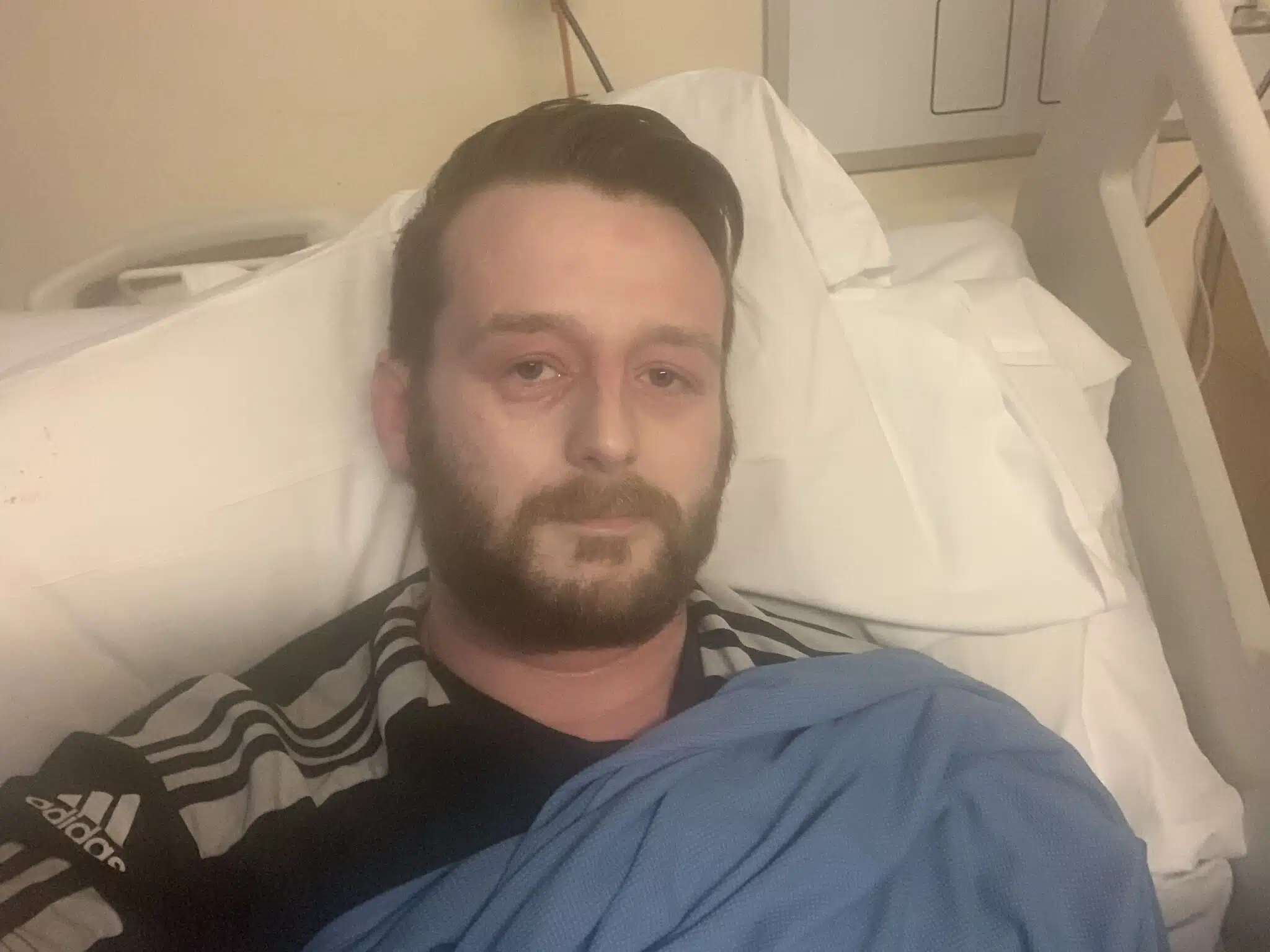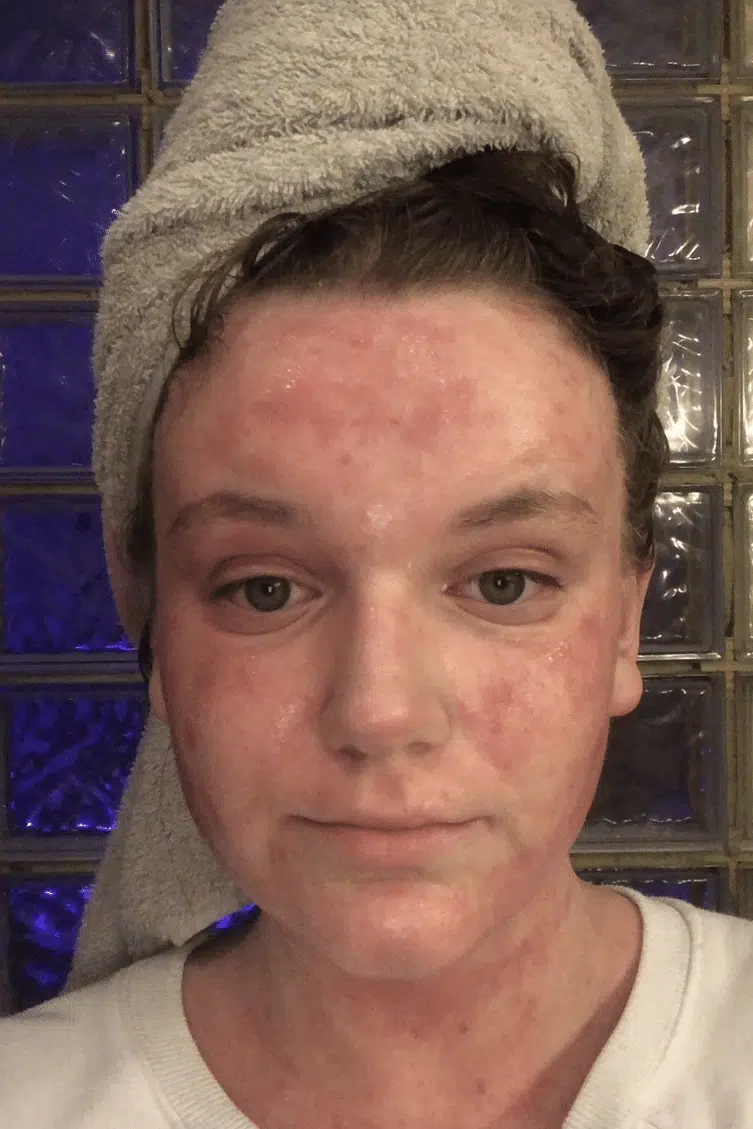We’re delighted to share that we will be funding four ground-breaking eczema and TSW research projects in our first-ever grant round!
This is a milestone moment for the Society, in our 50th year.
Meet the researchers:
PhD Studentship Award – The Christine Orton Memorial Award
Talk TSW – Talking about Topical Steroid Withdrawal in Healthcare Consultations
Researchers including Dr Paul Leighton, Dr Laura Howells, and Dr Lydia Tutt at the University of Nottingham, are exploring how people with eczema and healthcare professionals talk about topical steroid withdrawal (TSW).
Together they want to create a tool that helps support better conversations and improve care for those impacted by TSW.
“This is an incredibly exciting new chapter for the National Eczema Society as we begin directly funding research for the first time”, said Andrew Proctor, chief executive of National Eczema Society.
“We are especially proud to honour our founder, Christine Orton, by naming our first PhD studentship after her — a fitting tribute to her visionary work and lifelong dedication to improving the lives of people with eczema.“
PhD Studentship Award
Evaluating Effects of Sunlight and Other Environmental Exposures in Atopic Dermatitis
Researchers led by Dr Kirsty Rutter and Dr Zenas Yiu at the University of Manchester, are exploring how sunlight and other environmental factors impact eczema symptoms. They are also investigating whether wearable UV sensors and data tools can help people manage their eczema more effectively.
Pump-Priming Award
The Lived Experiences of Women with Atopic Dermatitis – Natural Language Processing (LEAD NLP)
Professor Carsten Flohr and his team at King’s College London are using AI and interviews to understand better the challenges women with eczema face – especially during pregnancy. Their research aims to improve care and guide better support for healthcare professionals.
Pump-Priming Award
Scratching the Surface: Investigating the Scale and Molecular Mechanisms of Topical Steroid Withdrawal
Dr Alice Burleigh and Professor Sara Brown, at the University of Edinburgh, are investigating how topical steroid withdrawal (TSW) develops. Their research could lead to better ways of diagnosing and treating TSW in the future.
It is National Eczema Society’s aim that our research grant round becomes an annual award.
Explore information on future funding opportunities.

On this International Nurses Day, we want to extend our heartfelt thanks and appreciation to Julie Van Onselen, our esteemed Dermatology Nurse Advisor, who has been a vital part of the NES community for over 25 years.
Julie’s dedication, expertise, and passion have made an immeasurable impact on our work and the lives of those we support. Most recently, she has led our Exploring Eczema series with insight and compassion, sharing her knowledge in ways that truly empower and educate. Her regular contributions to our members-only magazine, Exchange, continue to inform and inspire, and her guidance as a member of our Medical Advisory Board helps to shape our approach and priorities.
Julie exemplifies the very best of nursing, skilled, empathetic, collaborative, and driven by a genuine desire to improve care. We are incredibly lucky to have her as part of our team, and we thank her deeply for her tireless work and longstanding commitment to NES.
Thank you, Julie, for everything you do.
Have you met wrestler Vinnie Kray? While in hospital, dealing with a painful eczema flare-up, Vinnie decided to turn his experience into something positive. That’s when he came up with the idea for the Ultimate British Wrestling’s – Superbrawl, in support of the UK charity for those suffering from eczema, National Eczema Society.
You can join Vinnie and the team on Saturday 17 May at 5pm, as he brings the fight to eczema with Ultimate British Wrestling. Grab a ticket and join the action live in Stevenage.
Eczema is a complex medical condition affecting 8 million people in the UK, that is 1 in 5 children and 1 in 10 adults. Individuals’ skin can become sore, inflamed, dry, cracked, and very itchy. But what happens when you are a wrestler with eczema?

From what you wear, to the activities you can and can’t take part in, to the work you do and even having children. If you live with more severe atopic eczema, you have to constantly plan and prepare. Along with a time-intensive and messy skincare regime, and regularly disturbed sleep, life with eczema can be all-consuming for people with eczema often their families. Eczema is also a visible skin condition, and many people worry how others will react when their skin is inflamed.
That is why Vinne is making a stand, as he steps into the ring, “I’ll be raising awareness and funds to support others facing the same fight. As a wrestler, managing eczema adds an extra layer of challenge. The pressures of performing and training while dealing with a long-term skin condition isn’t often talked about, but are very real,” said Vinnie.
“I’ve had eczema since my teenage years. It’s been a part of my life, but recently it escalated to the point where I was hospitalised for two nights due to a severe flare-up”.

“This event is more than a wrestling show, it’s a platform to raise awareness and let everyone know that with the right support, no one has to face eczema alone”, explains Vinnie.
National Eczema Society works to make life better for the eczema community , by providing information, supporting research and campaigning for better care. This year, the charity is celebrating its 50th anniversary.
“It’s amazing to see Vinnie Kray so committed to raising awareness and funds for the Society’s vital work”, said Andrew Proctor, chief executive of National Eczema Society.
“There is no cure for eczema, and until then we will work tirelessly to support our community and progress research to find the answers we so desperately need”.
If you can, grab a ticket and join the action live in Stevenage.
On 7th May 1975, 50 years ago today, the Society’s founder Christine Orton wrote an article in The Guardian newspaper calling for change. Christine highlighted the lack of support and information available to help her manage her son’s eczema. The response from others affected by eczema was overwhelming. Christine went on to organise a public meeting and, soon after, the National Eczema Society charity was formed.
Our charity has achieved so much over the past five decades, thanks to our wonderful members, volunteers, donors, campaigners and the many healthcare professionals who support our work. We still have much more to accomplish though to make life better for people with eczema and their families. There is still no cure for eczema – and until there is, we will work tirelessly to support our eczema community, campaign for better care, and progress research to find the answers we desperately need.
National Eczema Society wrote a letter to The Guardian today, which we’ve reproduced here, highlighting our renewed commitment to bring about positive change for our eczema community.
7 May 2025
Fiftieth Anniversary of National Eczema Society
A Guardian letter published exactly 50 years ago proved transformative. Journalist Christine Orton, writing about her child’s severe eczema, prompted a massive response from other affected families leading to the founding of the National Eczema Society (NES) charity. Today, while we recognise significant advances in eczema care, many challenges remain, not least public attitudes and misunderstanding of eczema. In a world where perfect skin is expected, eczema is at best an embarrassment and at worst a source of disgust, compounding the misery and discomfort felt by many sufferers. Eczema, affecting 8 million children and adults in the UK, is sidelined by educators, regulators and funding bodies alike. A much-needed eczema management guideline was shelved by the National Institute for Health and Care Excellence (NICE) leaving sufferers unable to access newer treatments. Research is dominated by financial interests. In response, NES has shifted its focus to become a powerful advocacy body for the eczema community. We celebrate our 50th anniversary with the success of the charity’s campaign for strength labelling of topical corticosteroids and the launch of our own research awards, one of which will be named after Christine Orton.
The Guardian helped galvanise eczema sufferers 50 years ago and we will continue to champion the eczema community with a louder voice over the next half century.
Professor Celia Moss OBE, Stephen Pugh and Andrew Proctor
National Eczema Society
On Sunday 27th April, an incredible team of seven National Eczema Society supporters, competed in the 2025 TCS London Marathon.
A massive thank you to Richard, Hannah, Tatum, Jessica, Rebecca, Poppy, and Harry, who took on the 26.2-mile challenge to raise awareness of eczema.
Thanks to their amazing efforts, they all smashed their individual fundraising targets and raised over £17,162 for National Eczema Society, and we are so grateful for their support!

They trained, pushed through every mile, and made every step count. It has truly been inspiring.
And shout out to every runner, volunteer, and supporter at the London Marathon.
If you would like to lace up your running trainers to take on a challenge for National Eczema Society, explore our events today.
Thank you, BBC, for featuring the huge problems people with eczema face waiting for a dermatologist appointment.
Many people struggle for a long time trying to control their eczema with the help of their GP and are very unwell by the time they get a referral to dermatology.
The pressure of then having to wait months or years to see a dermatologist is intolerable. It’s not right people with complex skin conditions like eczema are sent to the back of the queue. Eczema profoundly affects people’s physical health, mental health, quality of life and even life chances.
Read the full story: BBC News, Living hell for ‘forgotten’ skin patients.
‘We don’t understand why people with eczema and other inflammatory skin conditions are being treated as second-class citizens by the NHS. Eczema profoundly affects people’s physical health, mental health, quality of life and even life chances. It’s vital eczema patients are treated quickly and effectively by Dermatology service when they their symptoms are severe and they are very unwell.’ said Andrew Proctor, chief executive of National Eczema Society.
It’s vital eczema patients are treated quickly and effectively by Dermatology services when they have severe symptoms and are unwell.
A massive thank you to National Eczema Society’s eczema warrior, Elle, who bravely shared her experience as part of the feature. It is important that we keep raising awareness.

Read Elle’s eczema story today
“I waited two years to have patch testing done”.
